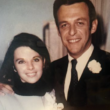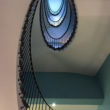Jim Boeheim: Coaching His Way Through Prostate Cancer
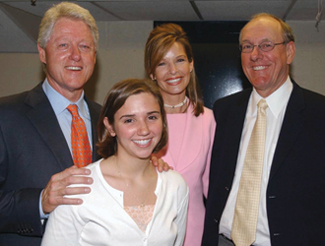
Jim Boeheim’s attitude toward statistics tells a lot about how he treated his diagnosis of prostate cancer when he was 56.
He readily knows how many wins he’s been part of as basketball coach at Syracuse University – 829.
Ask him about losses, a low percentage by the way, and he can’t recall the exact number.
Boeheim has one of the best records in college basketball but, still, he’s not concerned with percentages. He remembers “the wins.”
A Prostate Cancer Diagnosis for Coach Boeheim
That same perspective worked well when he was diagnosed with prostate cancer in 2001.
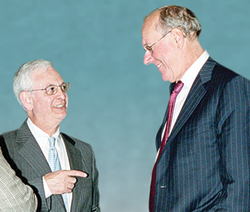
Boeheim had been having problems from an enlarged prostate and the drug treatments weren’t alleviating the symptoms.
“I went to the best surgeon everyone recommended – that was Dr. Catalona – thinking I was a candidate for a TURP (prostate gland reduction),” Boeheim said.
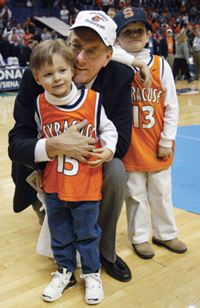
“I didn’t have to think about what I was going to do. Dr. Catalona would operate and I’d be done with cancer. And that would be it.”
Dr. Catalona explained to him that, as a precaution, it is best to do a biopsy before a TURP because if a patient has prostate cancer, the TURP could complicate subsequent treatment.
Boeheim’s prostate biopsy report came back with the finding of small amounts of cancer.
The Action
“I didn’t have to think about what I was going to do. Dr. Catalona would operate and I’d be done with cancer. And that would be it,” Boeheim said.
In fact, when he and his wife went for the pre-surgery consultation, he remembers Dr. Catalona repeatedly asking if he had any questions. He didn’t.
“You see what happens. If issues arise, you deal with them as they come,” Boeheim said.
He didn’t see the point of asking questions about whatever issues he’d have to deal with later on when he didn’t have any idea of what they would be or what may or may not happen.
While Boeheim realizes that he might be one of the few who doesn’t have questions, he explains it by saying, “I was convinced I was in the best hands in the world. All would be fine and I’d deal with what I had to at the time.”
Boeheim sees coaching the same way.
“You make your decisions, see what happens, and then move forward accordingly. I’m thinking about things, but I’m always thinking they’ll go well.”
Boeheim knows about cancer. His mother died prematurely from leukemia and his father died from prostate cancer.
“When I had the opportunity, at 56 years old, to get rid of the cancer completely, I didn’t hesitate,” he said.

After the Operation
His recovery was not difficult, but the first days in the hospital after the operation were hard.
“That’s when I was so glad to have my wife there seeing that everything was being taken care of. Still, even in the hospital, I got the best sleep I had in a long time,” Boeheim said.
He might be one of the few men who welcomed the catheter – relief from enlarged prostate symptoms that had been waking him from sound sleep for years.
Boeheim spent three days in the hospital, returned to Syracuse and watched basketball practice that weekend. He was back leading practices in 10 days and coaching a game in 14.
Unavoidably, the operation was during the basketball season and Boeheim missed three games, the only time he’s missed a game in 34 years.
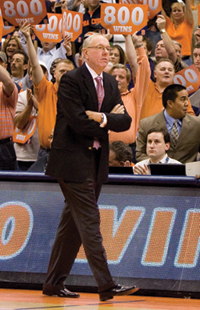
Sixteen months after treatment, that team he came back to coach two weeks after a prostatectomy won the 2003 NCAA national championship.
Back to the Court and to Family
Since being diagnosed and treated for prostate cancer, Boeheim and his teams won a national title and two Big East tournament titles. Off-season, he helped coach the US basketball team that won an Olympic gold medal and he continues to assists in coaching the US team.
Altogether, he’s been part of 27 NCAA tournament appearances and three NCAA national championship games. Under his coaching, Syracuse won nine BIG EAST regular-season championships and five BIG EAST Conference championships.
Boeheim, though, does more than “live to coach.” He has four children, three not yet teenagers. The three younger ones play baseball and basketball, and Boeheim is there for all their games. All three attend his 3-week summer basketball camp.
Finding time for his four children and his wife is important to him.
“I didn’t start my family until I was 41. Three of my children were born shortly before my prostate cancer diagnosis. I wasn’t going to gamble over whether or not I was going to be part of their lives.”
Emotional After Effect
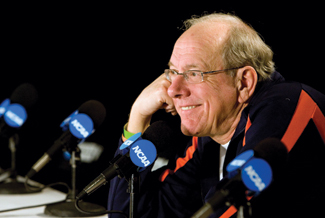
Boeheim worries a little when he goes in for his PSA follow-ups, but that concern doesn’t last long.
“There’s always some anxiety that goes with a cancer experience and for that check-up time, the threat is more present. But it’s a passing thought.”
Otherwise, he doesn’t think much about prostate cancer. Boeheim, who has happily spent his entire coaching career at Syracuse, is a man whoappreciates the good place he’s in – both physically and emotionally.
“I do the same things I would have done with or without that diagnosis,” Boeheim said.
One added thing he does, though, is talk to other men about prostate cancer. He tells them to get an annual physical and make sure it includes a PSA test.
“Just take a simple blood test. The key is early detection.”
The other thing he does is follow the advice he gives to his players on the court.
“Anybody who goes down a challenging road knows you’ve just got to keep moving.”






